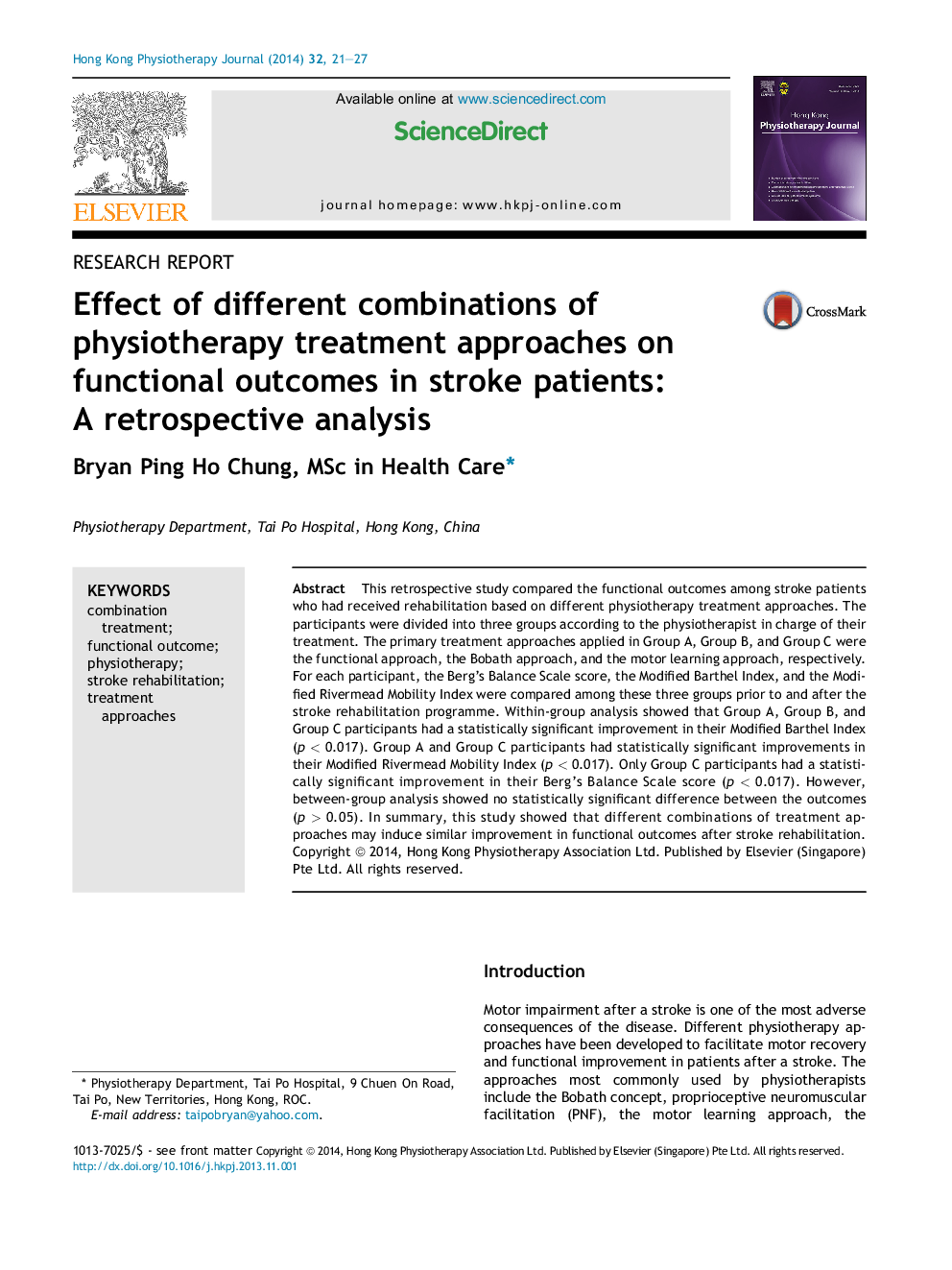| Article ID | Journal | Published Year | Pages | File Type |
|---|---|---|---|---|
| 2618293 | Hong Kong Physiotherapy Journal | 2014 | 7 Pages |
This retrospective study compared the functional outcomes among stroke patients who had received rehabilitation based on different physiotherapy treatment approaches. The participants were divided into three groups according to the physiotherapist in charge of their treatment. The primary treatment approaches applied in Group A, Group B, and Group C were the functional approach, the Bobath approach, and the motor learning approach, respectively. For each participant, the Berg's Balance Scale score, the Modified Barthel Index, and the Modified Rivermead Mobility Index were compared among these three groups prior to and after the stroke rehabilitation programme. Within-group analysis showed that Group A, Group B, and Group C participants had a statistically significant improvement in their Modified Barthel Index (p < 0.017). Group A and Group C participants had statistically significant improvements in their Modified Rivermead Mobility Index (p < 0.017). Only Group C participants had a statistically significant improvement in their Berg's Balance Scale score (p < 0.017). However, between-group analysis showed no statistically significant difference between the outcomes (p > 0.05). In summary, this study showed that different combinations of treatment approaches may induce similar improvement in functional outcomes after stroke rehabilitation.
